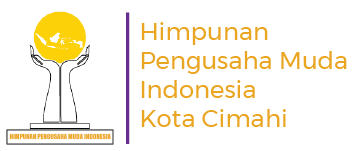Empowering Youth: Islamic Economic Reforms Pave the Way for Young Entrepreneurs
In recent years, the global economic landscape has witnessed a growing interest in Islamic economic principles and their potential to empower youth and promote entrepreneurship. Islamic economics, rooted in the teachings of Islam, offers a unique perspective on wealth distribution, ethical business practices, and social justice. As these principles gain traction, they are opening up new avenues for young entrepreneurs to thrive and contribute positively to their societies.
Foundations of Islamic Economics:
At the heart of Islamic economics lies the concept of "Halal" (lawful) and "Haram" (forbidden) transactions. Islamic teachings emphasize ethical business conduct, fair trade, and the prohibition of exploitative practices. Interest-based transactions (usury) are strictly forbidden, encouraging entrepreneurs to seek alternative financing methods that are based on profit-sharing and risk-sharing.
Empowering Youth Through Ownership:
Islamic economics encourages ownership and wealth distribution, aiming to prevent the concentration of wealth in the hands of a few. This principle aligns well with the aspirations of young entrepreneurs who seek to establish businesses and create sustainable livelihoods for themselves and their communities. By focusing on equitable wealth distribution, Islamic economic reforms offer youth the opportunity to participate in economic activities with a sense of social responsibility.
Interest-Free Financing:
One of the significant hurdles faced by young entrepreneurs, especially in conventional finance, is the burden of interest on loans. Islamic finance provides an alternative by promoting interest-free financing methods such as "Mudarabah" (profit-sharing) and "Musharakah" (partnership). These approaches not only alleviate the financial burden on young entrepreneurs but also encourage collaboration and risk-sharing between investors and business owners.
Socially Responsible Entrepreneurship:
Islamic economics places a strong emphasis on the social impact of business activities. Entrepreneurs are encouraged to consider the welfare of their employees, customers, and the broader community. This resonates with the values of many young entrepreneurs who are keen on making a positive difference through their ventures. By adhering to principles of fairness, accountability, and ethical conduct, young entrepreneurs can contribute to a more just and sustainable economy.
Supporting Innovation and Creativity:
Islamic economics does not stifle innovation; rather, it provides a framework that encourages creativity while ensuring that it occurs within ethical and moral boundaries. This aligns with the aspirations of young entrepreneurs who are eager to innovate and disrupt traditional industries. By adhering to ethical guidelines, they can develop solutions that cater to market demands while upholding social and environmental responsibility.
Challenges and Opportunities:
While Islamic economics offers a promising path for young entrepreneurs, there are challenges that need to be addressed. These include the need for comprehensive education about Islamic economic principles, establishing supportive financial institutions, and overcoming cultural barriers. However, these challenges also present opportunities for governments, institutions, and organizations to collaborate and create an environment conducive to the growth of youth-led businesses.
Conclusion:
The intersection of Islamic economic principles and youth entrepreneurship presents a dynamic opportunity for positive change. Empowering young entrepreneurs through ethical business practices, interest-free financing, and social responsibility not only benefits them individually but also contributes to more inclusive and sustainable economies. As Islamic economic reforms gain momentum, they are paving the way for young entrepreneurs to create innovative and impactful businesses that align with their values and contribute to the betterment of societies on a global scale.






